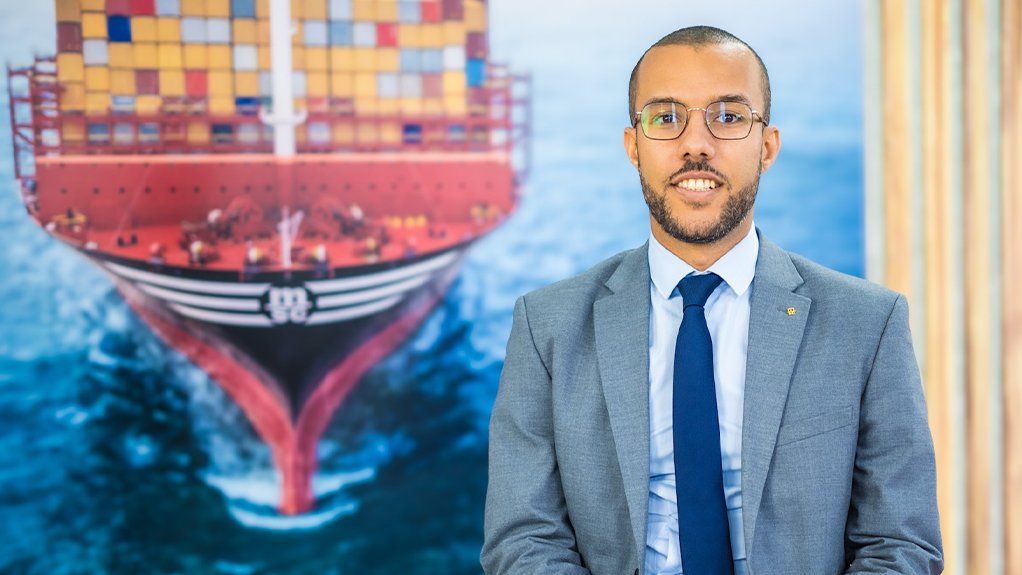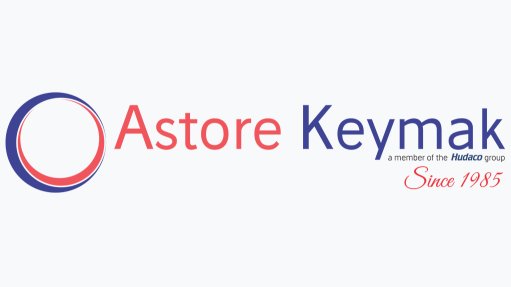Logistics advancing Guinea’s development
Recognising the strategic importance of diversified major Rio Tinto’s multi-stakeholder development of its Guinea-based Simandou project, logistics and transportation services provider MSC Guinea has engaged proactively with the main contractors involved in the mine’s construction, ensuring the timely delivery of equipment in containers from numerous ports of loading across the world to Conakry, the capital of Guinea.
The mining sector remains a key pillar of Guinea’s economy, with ongoing developments, such as the Simandou project driving further expansion, says MSC Guinea MD Mael Atayi.
As a key logistics partner in the region, MSC Guinea ensures the efficient transportation of essential materials and timely delivery of equipment, facilitating the construction of the mining sites as well as their operations onsite, which Atayi notes is crucial to the success of mining operations.
MSC specialises in containerised shipments of various cargo and project cargo solutions, providing oversized and heavy cargo handling services that offer custom project cargo solutions to meet specific requirements. The company transports materials from Asia, Europe and South Africa for the creation of mining blocks and sites, as well as for operations onsite in existing mines.
The Simandou project, which has been central in discussions of Guinea’s economy for nearly two decades, has made progress, but has also had to deal with setbacks, Atayi points out.
However, since its revitalisation in 2022, following a tripartite agreement signed by Guinean authorities, significant progress has been made.
Simandou’s potential to double Guinea’s GDP in the next decade is becoming increasingly achievable, and the increase in containerised volumes over the past few years reflects this progress, he adds.
From 2022 to 2023, inbound Guinean full twenty-foot equivalent unit (TEU) container imports, of all carriers, grew by 10%, and from 2023 to 2024, the figure reached 20%, with total volumes, combining imports and exports, surpassing 200 000 TEUs for the first time, says Atayi.
In response to the rising demand for oversized and heavy cargo transportation, MSC Guinea has developed a dedicated project cargo department in-country, enabling major mining companies, such Rio Tinto and their suppliers, to efficiently transport super-heavy equipment using containerised vessels, with regular weekly departures.
This frequency is a critical advantage for a project of Simandou’s scale, where timing is essential to keep construction on schedule and meet deadlines.
To further improve regional logistics efficiency, MSC has expanded its West Africa feeder network by using Lomé, the capital city of Togo, as a trans-shipment hub for its Africa Express service to and from Asia.
For example, the direct feeder service from Lomé to Conakry, which was introduced in January 2023 with two to three weekly calls, allows cargo from Asia to Conakry to be trans-shipped using Lomé.
This has reduced transit times for imports and exports, benefiting the mining sector by ensuring a more reliable supply chain, Atayi says.
“With 72 maritime services and 166 weekly calls across 65 African ports, MSC plays a key role in strengthening regional trade connectivity,” Atayi adds.
The 600 km railway being developed for the Simandou project is set to be a catalyst for Guinea’s logistics infrastructure, with the potential to “transform ore transport” in Guinea, he further comments.
Once operational, the rail line, managed by rail and port infrastructure consortium Compagnie du TransGuinéen (CTG), will serve multiple purposes for the globalising Guinean economy, including the transportation of iron-ore, passenger travel and general cargo movement.
MSC is preparing to integrate its services with this new infrastructure to offer seamless door-to-door logistics solutions.
“Rail transport offers a safer, greener and more reliable alternative, and we look forward to collaborating with CTG to optimise freight transportation and enhance logistics efficiency in Guinea,” Atayi comments.
Advancing Digitalisation
As part of its digitalisation strategy, MSC aims for the full adoption of electronic bills of lading (eBLs) by 2030, thereby providing a secure and paperless way of managing cargo information, tracking shipments and confirming shipping transactions.
“An eBL can be transferred [for example] from a shipper in Shanghai to a consignee in Conakry in under 15 minutes. This eliminates delays, reduces costs and streamlines supply chain operations,” he explains.
By adopting blockchain, eBLs provide a faster and more reliable solution, compared to paper-based bills of lading, which can be delayed, get lost in transit or require costly express airmail.
For the mining industry, the swift transfer of eBLs offers significant advantages in enhancing supply chain efficiency, Atayi says.
While MSC Guinea embraces innovative digital solutions, the company remains committed to its core values, with people at the heart of its operations.
“Technology enhances our services, but human expertise remains essential in solving complex logistical challenges. As a result, MSC is proud to be a people-driven company with a digital touch, not the other way around,” Atayi tells Mining Weekly.
Further, infrastructure issues in Guinea present significant challenges across various industries, not just mining, as cargo movement is broadly affected by the state of infrastructure.
Article Enquiry
Email Article
Save Article
Feedback
To advertise email advertising@creamermedia.co.za or click here
Press Office
Announcements
What's On
Subscribe to improve your user experience...
Option 1 (equivalent of R125 a month):
Receive a weekly copy of Creamer Media's Engineering News & Mining Weekly magazine
(print copy for those in South Africa and e-magazine for those outside of South Africa)
Receive daily email newsletters
Access to full search results
Access archive of magazine back copies
Access to Projects in Progress
Access to ONE Research Report of your choice in PDF format
Option 2 (equivalent of R375 a month):
All benefits from Option 1
PLUS
Access to Creamer Media's Research Channel Africa for ALL Research Reports, in PDF format, on various industrial and mining sectors
including Electricity; Water; Energy Transition; Hydrogen; Roads, Rail and Ports; Coal; Gold; Platinum; Battery Metals; etc.
Already a subscriber?
Forgotten your password?
Receive weekly copy of Creamer Media's Engineering News & Mining Weekly magazine (print copy for those in South Africa and e-magazine for those outside of South Africa)
➕
Recieve daily email newsletters
➕
Access to full search results
➕
Access archive of magazine back copies
➕
Access to Projects in Progress
➕
Access to ONE Research Report of your choice in PDF format
RESEARCH CHANNEL AFRICA
R4500 (equivalent of R375 a month)
SUBSCRIBEAll benefits from Option 1
➕
Access to Creamer Media's Research Channel Africa for ALL Research Reports on various industrial and mining sectors, in PDF format, including on:
Electricity
➕
Water
➕
Energy Transition
➕
Hydrogen
➕
Roads, Rail and Ports
➕
Coal
➕
Gold
➕
Platinum
➕
Battery Metals
➕
etc.
Receive all benefits from Option 1 or Option 2 delivered to numerous people at your company
➕
Multiple User names and Passwords for simultaneous log-ins
➕
Intranet integration access to all in your organisation





















